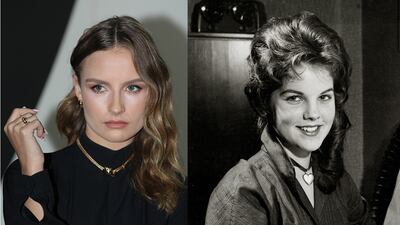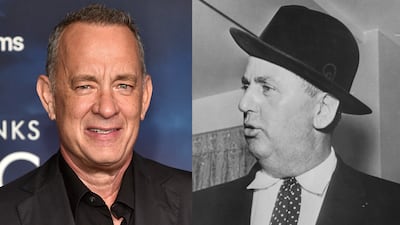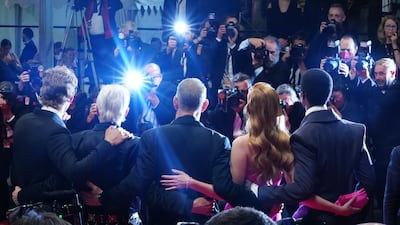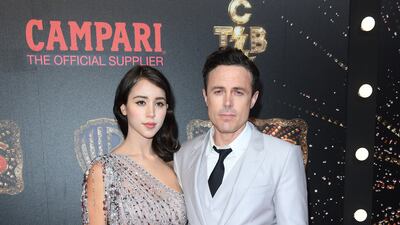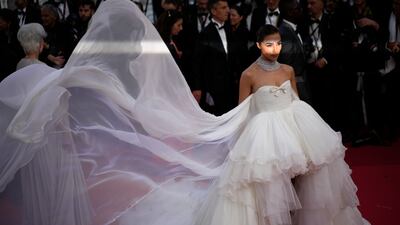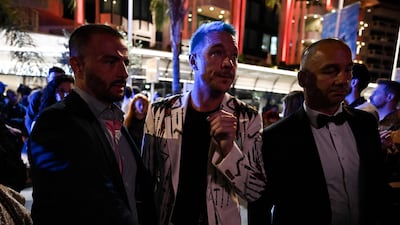Baz Luhrmann and Elvis Presley were always going to be a match made in showbiz heaven. The Australian director of Strictly Ballroom and Moulin Rouge! seems tailor-made to bring the life story of the king of rock’n’roll to the big screen.
Premiering out of competition at the Cannes Film Festival, Elvis is a dazzling, sometimes overwhelming, biopic that throws everything at the wall. Rising star Austin Butler must surely have blasted his way in contention in next year’s Oscar race with a titanic performance as Elvis, brimming with vim and vigour.
Narrating the film is Colonel Tom Parker (Tom Hanks), the mysterious impresario who became Elvis’s manager, craftily sending this boy from Memphis to stratospheric heights. While Luhrmann, who penned the script with Sam Bromell and Craig Pearce, takes a largely chronological approach — the film starts with an ageing Parker in a hospital bed in Las Vegas. “Without me, there would be no Elvis Presley,” he grouses, and there’s an immediate sense that the film’s narrator, a man who truly understands showmanship, is crafting his own biography here.
The film’s early stages are about Parker discovering Elvis, watching agog as his on-stage charisma and pelvic movements — the “wiggle”, as one of his bandmates quaintly puts it — sends girls wild. Touring alongside the more wholesome Hank Snow (David Wenham) and Jimmie Rodgers (Kodi Smit-McPhee), Elvis is soon outgrowing them. Parker shrewdly invites Elvis’s god-fearing family into the fold, making his father Vernon (Richard Roxburgh) the business manager, but without involving him in any real decisions.
According to Parker, he invents the idea of merchandise — Elvis’s name and image plastered on hats, T-shirts, cushions, you name it. He even manufactures "I Hate Elvis" pin-badges. The haters will always hate, he reasons, so better to profit from them than not. Then comes hostilities from the authorities, shocked by Elvis’s on-stage “lewd gyrations”, as Snow puts it. “Crimes of lust and perversions” scream the headlines, with the singer facing jail time.
When he heads to Germany for a two-year stint in the army to avoid imprisonment, he meets Priscilla (Olivia DeJonge), the love of his life and, eventually, mother of his child, Lisa Marie. The Australian-born DeJonge (recently seen in HBO show The Staircase) initially struggles to find any oxygen in the film — no surprise, given Butler’s show-stopping turn and a corpulent-looking Hanks with his faux European accent taking centre stage. But as their relationship experiences lows, with Elvis increasingly popping prescription drugs, she makes her mark with a couple of killer scenes.
Scroll through the gallery below to see the 'Elvis' premiere in Cannes:
As for Luhrmann, he simply won’t let this film rest. The camera rarely stops moving, whirling up and around Elvis, while the editing by Jonathan Redmond and Matt Villa is utterly dynamic. Costumes and production design, time-travelling you back to the era, are also superlative. But the film doesn’t truly come into its own until the 1968 section. “Is it my fault the world changed?” remarks Parker, as civil rights protests and assassinations of Dr Martin Luther King and Bobby Kennedy flood the news.
Parker doesn’t want Elvis making political statements — he doesn’t even want him leaving the country to tour internationally for “security” reasons. But there comes a point when the singer needs a rebirth. The so-called ’68 Comeback Special, with Elvis dressed in black leather and rocking out raw versions of songs such as Heartbreak Hotel and Guitar Man, is brilliantly staged — more so, as Luhrmann reminds us that it was supposed to be a sanitised Christmas TV show. Butler pours everything into these scenes, commanding the stage, sweating from every pore.
As Elvis takes up residency in Vegas (a sequence that includes a stunning version of That’s All Right), he suffers from exhaustion and cracks appear in his relations with Priscilla and Parker. With its subject alone and isolated, the final act takes an unsurprisingly more sombre turn.
Luhrmann, who hitherto uses split screen for some moments, takes a breath. Given the singer’s death in 1977 — dying aged 42 from a heart attack — the film brings Elvis’s story to a poignant and dignified close. An Unchained Melody rendition will likely elicit tears, as will real footage of the King cut into the finale.
Does the film get under Elvis’s skin enough? Perhaps not. It’s not the most psychologically probing of films. But Luhrmann is a director who knows how to put on a show, much like Parker, and in that regard Elvis is the greatest show on Earth.
A whirlwind of a movie, filled with light, colour and sound, it captures the 1950s and 1960s with real aplomb, a lavish spectacle on steroids. As the final credits remind us, Elvis was the biggest selling solo recording artist of all time. You can imagine after this, he’ll be selling a few more records.

